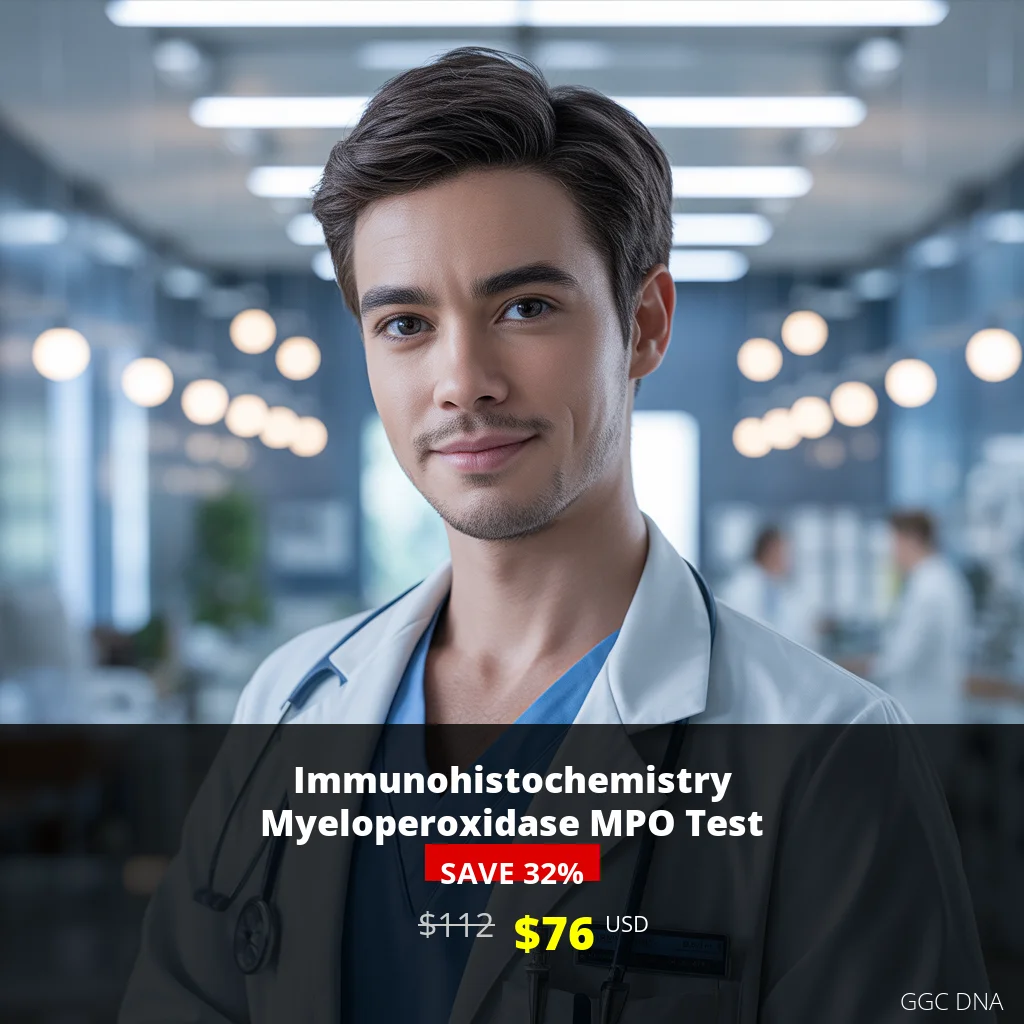Immunohistochemistry Myeloperoxidase MPO Test
Comprehensive Introduction to MPO Testing
The Immunohistochemistry Myeloperoxidase (MPO) Test represents a cornerstone in modern cancer diagnostics, specifically designed to detect the presence of myeloperoxidase enzyme within tissue samples. This sophisticated laboratory technique utilizes specific antibodies to identify MPO expression at the cellular level, providing invaluable insights into the nature and origin of malignant cells. As a critical tool in hematopathology and oncology, this test helps distinguish between different types of blood cancers and solid tumors, enabling more precise treatment strategies and improved patient outcomes.
What the MPO Test Measures and Detects
The Immunohistochemistry MPO Test specifically identifies and localizes the myeloperoxidase enzyme, which is primarily expressed in cells of myeloid origin. This enzyme serves as a key marker for:
- Myeloid lineage cells in bone marrow and peripheral blood
- Acute myeloid leukemia (AML) cells and their subtypes
- Myelodysplastic syndromes with myeloid differentiation
- Granulocytic sarcomas and extramedullary myeloid tumors
- Reactive myeloid proliferations in various inflammatory conditions
Who Should Consider This Test
This specialized diagnostic test is recommended for individuals presenting with:
- Unexplained anemia, thrombocytopenia, or leukocytosis
- Suspected acute leukemia based on peripheral blood findings
- Bone marrow abnormalities detected in initial screenings
- Patients with suspected myeloid neoplasms or hematological malignancies
- Individuals requiring precise classification of leukemia subtypes for treatment planning
- Cases where differentiation between lymphoid and myeloid malignancies is necessary
Significant Benefits of MPO Testing
Choosing the Immunohistochemistry MPO Test provides numerous advantages:
- Precise Diagnosis: Enables accurate classification of leukemia subtypes
- Treatment Guidance: Helps oncologists select appropriate chemotherapy regimens
- Prognostic Information: Provides insights into disease progression and outcomes
- Minimal Sample Requirement: Requires only small tissue samples for comprehensive analysis
- Rapid Results: Delivers critical diagnostic information within 5-7 days
- Cost-Effective: Affordable testing with significant insurance coverage potential
Understanding Your Test Results
Your MPO test results will be interpreted by our expert pathologists and oncologists:
- Positive MPO Staining: Indicates myeloid lineage differentiation, commonly seen in AML and related disorders
- Negative MPO Staining: Suggests non-myeloid origin, potentially indicating lymphoid malignancies
- Focal or Weak Staining: May indicate early or atypical myeloid differentiation patterns
- Intensity Patterns: The strength of staining can provide additional diagnostic and prognostic information
Our medical team will provide comprehensive explanations of your results and discuss their implications for your treatment plan.
Test Pricing and Availability
| Test Name | Discount Price | Regular Price |
|---|---|---|
| Immunohistochemistry Myeloperoxidase MPO Test | $76 USD | $112 USD |
Nationwide Accessibility
We proudly serve patients across the United States with convenient testing locations in all major cities including New York, Los Angeles, Chicago, Houston, Phoenix, Philadelphia, San Antonio, San Diego, Dallas, and San Jose. Our state-of-the-art laboratories ensure consistent, high-quality results regardless of your location.
Take Action for Your Health
Don’t delay critical diagnostic testing. Early and accurate diagnosis is essential for effective cancer treatment. Our experienced team is ready to assist you with scheduling, sample collection, and result interpretation. Contact us today to schedule your Immunohistochemistry MPO Test and take the first step toward comprehensive cancer diagnosis and treatment planning.
Call or WhatsApp us now at +1(267) 388-9828 to book your test or get more information about our services.







